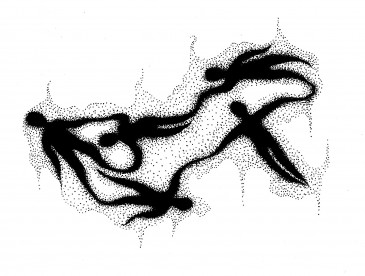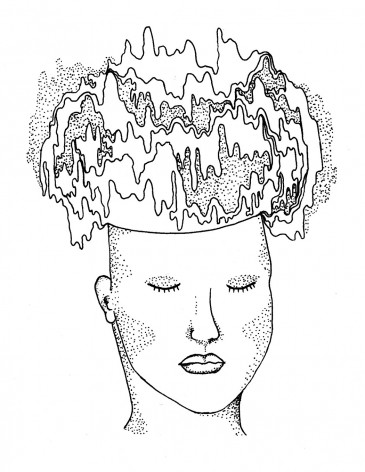
Two years ago, local musician Andrew Huculiak set off for Norway to shoot and direct his first feature film, Violent. Why shoot a film in Norway? Why script a film almost entirely in Norwegian? Let’s not get hung up on details right now. Violent made its hometown debut this past October as part of the “Must-See BC” series at VIFF, and won the awards for Best Canadian Film and Best BC Film.
The film’s story follows Dagny (Dagny Backer Johnsen), a Norwegian youth who leaves her small town in the mountains to reunite with her best friend Embla (Mari Sofie Andreassen) in the city. The reunion goes awry when she discovers that Embla is moving with her boyfriend to Stockholm. Next we follow Dagny through a timid set of misadventures as she delves into questions of identity, memory, and life’s ultimate meaning. If what I’m describing sounds vague, that’s because most of what happens in Violent has little to do with the story.
It doesn’t help that Dagny is about as passive a protagonist as they come. In the film’s most “dramatic” act, Dagny’s boss at a hardware store (Tor Halvor Halvorsen) falls in love with her. In each scene the drama becomes, simply, that Dagny doesn’t love him back. This is not conflict in the sense of being opposed to any of Dagny’s objectives; it is conflict in the sense of it merely being inconvenient, and, well, uncomfortable.
Thankfully, what Violent lacks in story, it makes up for in tone.
The film is divided into five chapters, each dedicated as a farewell to a loved one from Dagny’s life. At first this conceit seems merely stylistic, but it’s not long before the narrative importance becomes apparent. An abstract voiceover carries over the beginning of four of the film’s five chapters. We’re beset with images of molecules splitting, water pulling itself out of the earth, and houses along with people levitating; meanwhile We Are the City’s powerful electronic score pounds mystery and urgency into each frame. The sequences serve as an indicator to something larger at work, something perhaps taking place beneath all the tired and ordinary happenings at the film’s surface.

The cryptic title, Violent, could be a reference to the tension between the banal and profound. Huculiak plays on this variation with the dug-out intention of a pop musician playing E, F, and G for an hour and a half: the shots of landscape, the vague mentions of God or “great questions,” the drawn-out silences bookending scenes. It becomes a bit repetitive, though never unpleasant, and Backer Johnsen’s poised commitment to the ordinary keeps the film as far as possible from the existential vacuum that it sometimes threatens to vanish into.
Part of me has to wonder how the film would have played in English. Would we have bought the blocky bits of existential dialogue? Or does that just come as a built-in feature to your film being “foreign”? Another part of me says it doesn’t matter much. The film was satisfying, replete with enough curiosity and dumb, soft-hearted feeling to appease any cynic — I mean, critic.
So if somebody asks you, “Why Norway?,” you can reply, “Hvorfor ikke?” (“Why not?”)

